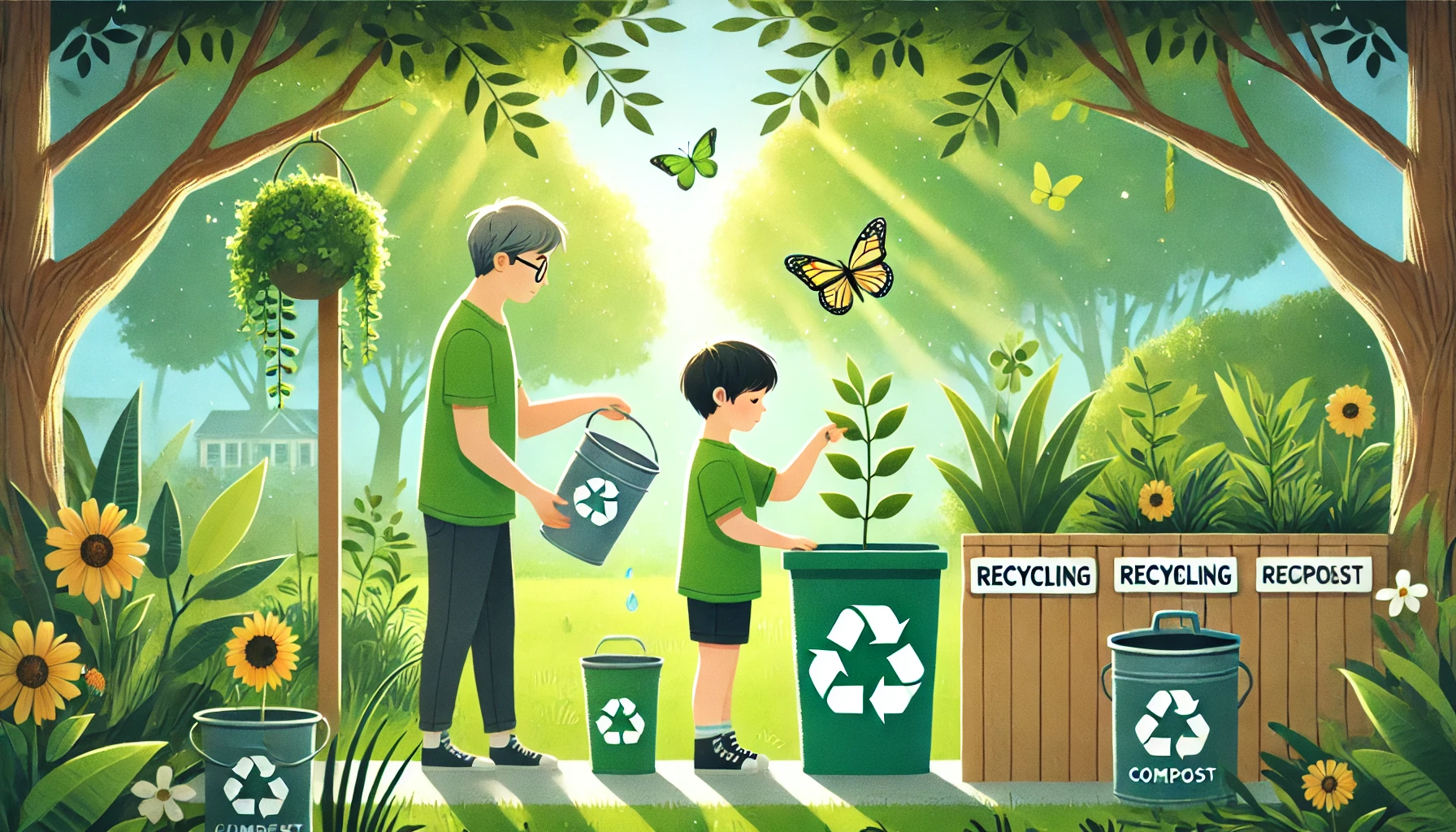Teaching children to respect nature and care for the environment from a young age helps them grow into mindful, responsible citizens of the world. When kids learn how their actions affect the planet—and feel empowered to make positive changes—they’re more likely to adopt sustainable habits that last a lifetime. With hands-on experiences, storytelling, and everyday routines, you can help your child connect with and protect the natural world.
Why Environmental Responsibility Matters
- Fosters appreciation for animals, plants, and the Earth
- Encourages empathy and mindfulness
- Builds a sense of responsibility for shared spaces
- Promotes healthy outdoor activity and exploration
- Develops habits that contribute to long-term sustainability
1. Talk About Nature in Positive, Relatable Ways
Start with wonder and curiosity before responsibility.
Activity Idea:
- Say: “Trees give us clean air to breathe,” or “Bees help flowers grow!”
- Go on walks and ask your child what they notice or love most about nature.
- Ask: “What’s your favorite thing outside?”
What Kids Learn:
- That nature is alive, important, and worth protecting.
- How to pay attention to the world around them.
- That their relationship with nature is personal.
2. Spend Time in Nature Regularly
Connection leads to care.
Activity Idea:
- Visit parks, gardens, beaches, or forests as often as you can.
- Let your child dig in dirt, watch ants, or collect colorful leaves.
- Lie on the grass and talk about the clouds or stars.
What Kids Learn:
- That nature is fun, calming, and exciting.
- That the Earth is a living system.
- How to slow down and observe.
3. Introduce Recycling and Reusing
Small actions teach big ideas.
Activity Idea:
- Set up labeled recycling bins at home with pictures (paper, plastic, trash).
- Turn old containers into crafts or plant pots.
- Let your child help sort recyclables after snack time.
What Kids Learn:
- That not everything is garbage.
- How to sort and think critically about waste.
- That their actions reduce harm to the planet.
4. Start a Simple Garden or Care for a Plant
Hands-on responsibility teaches care.
Activity Idea:
- Let your child plant a seed and water it daily.
- Name the plant or chart its growth.
- Talk about the role of sunlight, water, and soil.
What Kids Learn:
- How living things grow and change.
- Patience and responsibility.
- The beauty of nurturing life.
5. Teach Kindness to Animals and Insects
Respect for all creatures leads to greater compassion.
Activity Idea:
- Watch birds, squirrels, or bugs and talk about their homes and habits.
- Teach: “We don’t step on ants—they’re doing their jobs too.”
- Read books about wildlife and habitats.
What Kids Learn:
- That all living beings have value.
- How to observe gently and respectfully.
- Empathy across species.
6. Read Books About Nature and the Environment
Stories make complex ideas relatable.
Activity Idea:
- Read titles like The Earth Book by Todd Parr or Compost Stew by Mary McKenna Siddals.
- After reading, ask: “How did the characters help the Earth?”
- Let your child make their own book about nature.
What Kids Learn:
- How people can care for the environment.
- That kids can make a difference.
- New vocabulary around nature and sustainability.
7. Practice Energy and Water Conservation
Explain how resources are limited and precious.
Activity Idea:
- Use phrases like: “We turn off lights to save electricity,” or “We don’t let water run while brushing.”
- Create a “green checklist” with your child: lights off, faucet off, unplug when done.
- Make it a game: Who can remember to save energy the most this week?
What Kids Learn:
- That conservation starts with habits.
- The idea of shared resources.
- How to think long-term about their impact.
8. Celebrate Earth-Friendly Choices
Reinforcement helps form values.
Activity Idea:
- Create a “Nature Hero” chart or certificate for eco-friendly actions.
- Say: “You helped the Earth today—great job recycling!”
- Reflect during the week: “What did we do to help nature today?”
What Kids Learn:
- That being responsible feels good.
- That small actions are part of a bigger picture.
- Motivation to keep learning and caring.
Final Thoughts
Teaching young children to respect nature and take care of the environment gives them tools to live thoughtfully and compassionately. By connecting with nature through play, stories, and real-world choices, children begin to see themselves as caretakers of something beautiful and shared. And with each small act, they help protect the planet they call home.
